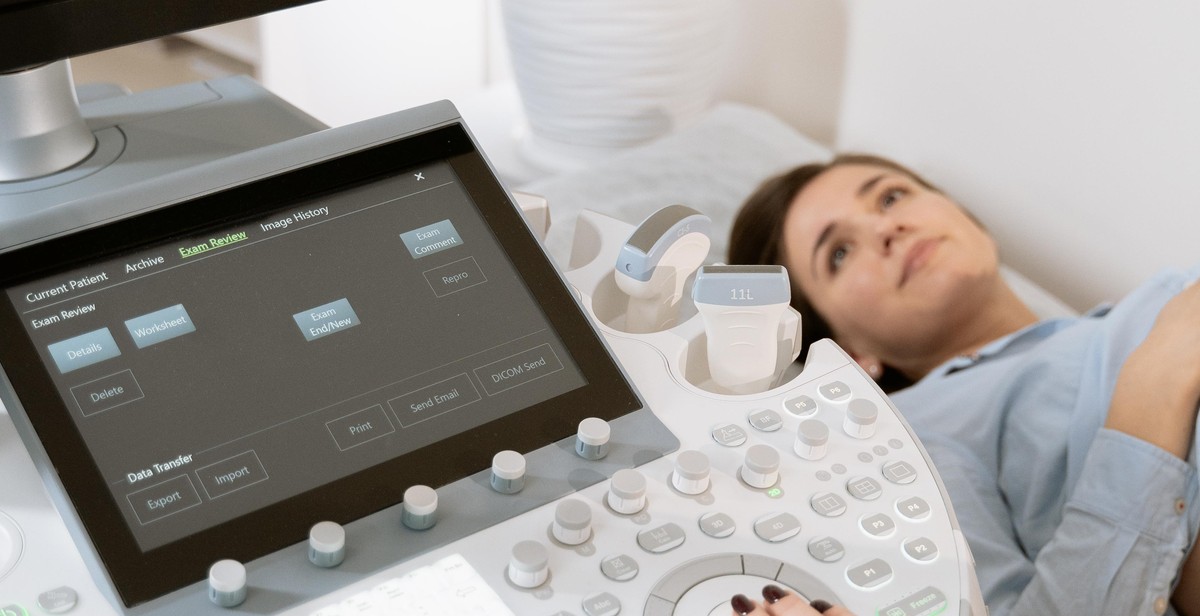How to Conduct Health Screenings: Assessing and Monitoring Patient Health
Health screenings are essential for assessing and monitoring patient health. They are a way to identify potential health problems early, before they become more serious. Conducting health screenings is also an effective way to promote healthy lifestyles and prevent chronic diseases. As a professional and experienced healthcare provider, I have conducted numerous health screenings throughout my career, and I have seen the positive impact they can have on patients’ lives.
The Importance of Health Screenings
Health screenings are important for several reasons. First, they can help detect health problems early, when they are more treatable. Second, they can identify risk factors for chronic diseases, such as heart disease, diabetes, and cancer. Third, they can provide an opportunity for healthcare providers to educate patients about healthy lifestyles and disease prevention. Fourth, they can help patients take control of their health by providing information and resources to help them make informed decisions about their health.
Types of Health Screenings
There are several types of health screenings that healthcare providers can conduct, depending on the patient’s age, gender, and medical history. Some common screenings include:
- Blood pressure screening
- Cholesterol screening
- Diabetes screening
- Colorectal cancer screening
- Breast cancer screening
- Cervical cancer screening
- Prostate cancer screening
Conclusion
In this article, I will provide an overview of how to conduct health screenings, including the types of screenings available, the importance of health screenings, and tips for conducting effective screenings. Whether you are a healthcare provider or a patient, understanding health screenings is essential for maintaining good health and preventing chronic diseases.

Why Conduct Health Screenings?
Health screenings are an essential part of preventive healthcare. They help identify potential health risks and detect diseases at an early stage, which can lead to better outcomes and lower healthcare costs. Here are some reasons why conducting health screenings is important:
Identifying Health Risks
Health screenings can help identify health risks that may not have any symptoms yet. For example, high blood pressure, high cholesterol, and diabetes are all conditions that can be detected through screenings. By identifying these risks early, healthcare providers can work with patients to manage their conditions and prevent them from becoming more serious.
Early Detection of Diseases
Screenings can also detect diseases at an early stage, before symptoms appear. This is important because many diseases are more treatable in their early stages. For example, breast cancer and colon cancer can both be detected early through screenings, which can lead to better outcomes and lower mortality rates.
Preventive Measures
Screenings can also help healthcare providers identify patients who may benefit from preventive measures, such as vaccinations or lifestyle changes. For example, patients who are at risk for heart disease may be advised to make changes to their diet and exercise routine to lower their risk. By identifying these patients early, healthcare providers can work with them to prevent the development of more serious conditions.
Overall, conducting health screenings is an important part of preventive healthcare. By identifying health risks, detecting diseases early, and recommending preventive measures, healthcare providers can help patients stay healthy and avoid more serious health problems down the line.

How to Prepare for Health Screenings?
Health screenings are an important part of maintaining good health. They help identify potential health issues early on, allowing for timely treatment and prevention of more serious health problems. If you have a health screening coming up, here are some tips on how to prepare:
Know Your Medical History
Before your screening, make sure you have a good understanding of your medical history. This includes any past surgeries, illnesses, medications, and family history of health issues. Knowing your medical history can help your healthcare provider better assess your risk for certain conditions and provide personalized recommendations for your health.
Follow Pre-Screening Instructions
Be sure to follow any instructions given to you before your screening. This may include fasting for a certain period of time, avoiding certain medications, or refraining from certain activities. Following these instructions can help ensure accurate screening results and prevent any complications.
Bring Required Documents
Make sure to bring any required documents with you to your screening. This may include your insurance card, ID, or any previous test results. Having these documents on hand can help streamline the screening process and ensure that you receive the proper care.
By following these simple tips, you can help ensure that your health screening goes smoothly and that you receive the best possible care for your health.

What to Expect During Health Screenings?
Health screenings are a crucial part of assessing and monitoring patient health. During a health screening, healthcare professionals will typically perform a variety of tests to evaluate a patient’s overall health and identify any potential health risks or conditions. Here’s what you can expect during a typical health screening:
Vital Signs Check
One of the first things healthcare professionals will do during a health screening is take vital signs. This includes checking a patient’s blood pressure, heart rate, respiratory rate, and temperature. These vital signs provide important information about a patient’s overall health and can indicate potential health issues or concerns.
Physical Examination
After taking vital signs, healthcare professionals will typically perform a physical examination. This includes checking a patient’s eyes, ears, nose, throat, heart, lungs, abdomen, and other areas of the body. During the physical examination, healthcare professionals will look for any abnormalities or signs of potential health issues.
Laboratory Tests
In addition to taking vital signs and performing a physical examination, healthcare professionals may also order laboratory tests as part of a health screening. This can include blood tests, urine tests, and other diagnostic tests. These tests can help identify potential health risks or conditions that may not be apparent through a physical examination alone.
Overall, health screenings are an important part of maintaining good health and identifying potential health risks or conditions. By understanding what to expect during a health screening, patients can be better prepared for the process and ensure that they receive the care and attention they need to stay healthy.

Interpreting Health Screening Results
After conducting a health screening, it is important to understand the results in order to make appropriate decisions for your health. The following are some medical terms that you may come across during the interpretation of your health screening results:
- Normal: This means that your results fall within the expected range and that there are no indications of health issues.
- Abnormal: This means that your results fall outside of the expected range and that further investigation may be necessary.
- High: This means that your results are higher than the expected range and may indicate a potential health issue.
- Low: This means that your results are lower than the expected range and may indicate a potential health issue.
It is important to remember that even if your results are abnormal, it does not necessarily mean that you have a health issue. Consulting with a healthcare provider is crucial in understanding your results and determining the appropriate course of action.
During a consultation with a healthcare provider, they may discuss any necessary lifestyle changes or further medical testing that may be required based on your results. It is important to ask any questions or express any concerns that you may have during this consultation.
Common Health Screening Results
Here are some common health screening results that you may come across:
| Health Screening Test | Normal Range | Abnormal Range |
|---|---|---|
| Blood Pressure | Less than 120/80 mmHg | Equal to or greater than 140/90 mmHg |
| Cholesterol | Total cholesterol: Less than 200 mg/dL | Total cholesterol: Equal to or greater than 240 mg/dL |
| Blood Glucose | Fasting blood glucose: Less than 100 mg/dL | Fasting blood glucose: Equal to or greater than 126 mg/dL |
It is important to note that these ranges may vary depending on age, gender, and other factors. Consulting with a healthcare provider is the best way to understand your individual health screening results.

Conclusion
Conducting regular health screenings is a crucial aspect of healthcare that helps in assessing and monitoring patient health. It not only helps in identifying potential health risks but also enables healthcare professionals to develop appropriate intervention strategies to prevent or manage chronic diseases.
When conducting health screenings, it is important to use reliable screening tools and techniques, and to ensure that patients understand the purpose and benefits of the screening process. Additionally, healthcare professionals should provide patients with personalized feedback and recommendations based on their screening results, and encourage them to adopt healthy lifestyle behaviors that can improve their overall health and well-being.
Overall, health screenings are an essential component of preventive healthcare and can help individuals lead longer, healthier lives. By taking the time to assess and monitor patient health, healthcare professionals can identify potential health risks early on and provide patients with the necessary tools and resources to manage their health effectively.
Remember, early detection is key to preventing and managing chronic diseases. So, make sure to schedule regular health screenings and take charge of your health today!
